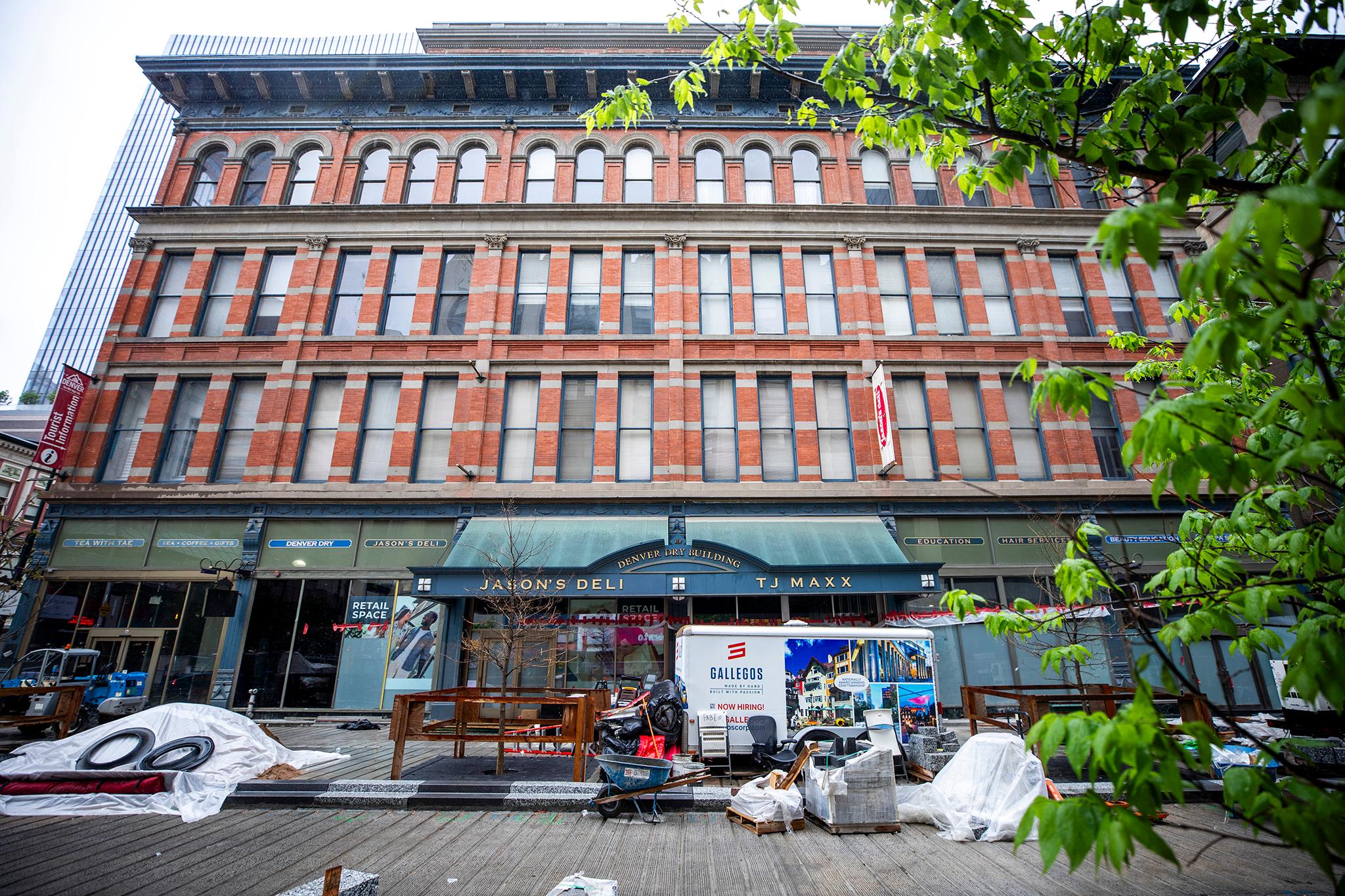Updated at 7:35 p.m. on Thursday, May 8
Three stories of commercial space at the historic Denver Dry Goods building at California Street and the 16th Street Mall may soon become 55 new income-restricted homes.
To complete the project, developer Perry Rose LLC is asking the city for a $5.5 million loan to a roughly $65 million budget. On Wednesday, a Denver City Council committee sent the loan to a full council vote.
The project is one of the latest examples of developers turning downtown commercial buildings into homes — transforming underused business space into new homes.
Denver Dry Goods has a long history in the city.
Denver Dry Goods was built in the 1880s. It once housed a popular downtown department store, a saddlery, a tea room – and, most recently, T.J. Maxx.
Back in the 1990s, after an economic downturn, preservationist and developer Chuck Perry converted a portion of the building into 51 affordable homes.
The city has supported that project with loans over the years.
At the time, converting commercial to residential was part of a wider effort to bring new residents to the urban core and transform downtown from a car-centric 9-to-5 neighborhood to a more walkable, residential community.
Today, conversion has taken on a new meaning. Commercial buildings are running high vacancy rates, but demand for homes remains high — so more developers are taking on the often-expensive process of turning former offices and stores into condos and apartments.
The developer has big hopes for the future of the building – and downtown.
Perry’s project is twofold. The developer is looking to rehab those older affordable units built in the ‘90s, while also building 55 more in the rest of the building.
The commercial space where the 55 units are planned is currently vacant.
Between the renovations and the new units, the plans call for one studio, 56 one-bedrooms and 49 two-bedrooms for people making between 30 and 80 percent of the area median income (currently between $27,400 to $71,900 for an individual and $35,200 and $92,400 for a three-person family).

If Denver City Council approves the $5.5 million loan, the developer will have 42 years to pay it back. The housing will be designated as affordable for the next 60 years, no matter who owns it.
The project comes as downtown Denver’s office vacancy rate is high and foot traffic is down.
By bringing working and middle-class residents to the city center, Mayor Mike Johnston hopes to boost downtown safety, foot traffic and retail, and rescue Denver’s economy through additional sales tax.
Denver is eying similar affordable housing projects in other commercial buildings downtown and throughout the city. It’s often an expensive process, but Johnston backs the trend, and so do preservationists hoping to save downtown buildings often embrace the idea.
“Preservation is a huge strategy for [the city’s affordable housing effort],” said Adam Lyons, the deputy director of housing opportunity for the Department of Housing Stability. “There’s some time efficiencies and cost efficiencies of not having to do a ground-up development.”
Editor's Note: Adam Lyons' last name has been corrected.












